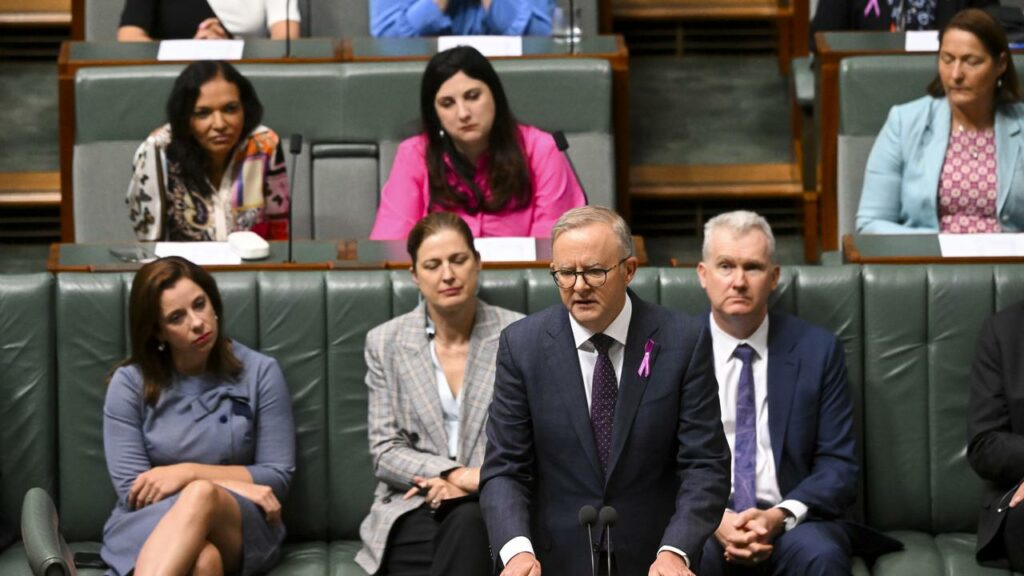Code of conduct needs parliament culture shift: staffer
Maeve Bannister |

A former Liberal Party staffer says federal parliament’s new code of conduct will only be as good as the culture that engages with it.
Politicians have endorsed a code of conduct for parliamentarians and their staff, a recommendation of the landmark Set the Standard report by Sex Discrimination Commissioner Kate Jenkins.
Ms Jenkins’ 2021 review lifted the lid on misconduct, finding one in three people surveyed in federal parliament reported being sexually harassed on the job.
Chelsey Potter has been a leading voice in uncovering the toxic culture of Parliament House workplaces and advocating for action on issues affecting women in politics.
She has spoken publicly about her alleged sexual assault by another Liberal Party staffer in 2015 and has been critical of her former office’s response.
Ms Potter told AAP while she welcomed the adoption of all of Ms Jenkins’ recommendations, it was the “bare minimum” for parliament considering the price many women had to pay for the report to come about.
She said each recommendation adopted would help further break down a long-standing culture in Parliament House.
“Any code of conduct is only as good as the culture that engages with it. However, I would encourage women and – importantly – men, to use it,” she said.
“We cannot let it become a document that gathers dust or is weaponised for political pointscoring.
“It must play an important role as an avenue to create a safe workplace for women.”
Former Liberal Party staffer Rachelle Miller – who was awarded a $650,000 settlement for damages sustained while working in two ministerial offices – said a former colleague who still works in parliament told her it was “delusional” to think things would change.
“How sad. The standard you walk past is the one you accept. But she just wants to keep her job,” she wrote on Twitter.
Prime Minister Anthony Albanese said Parliament House would never be a typical workplace but it must always be safe.
He said the behavioural code would enforce a better standard of integrity, dignity and mutual respect.
“This is a chance to do more than just catch up to the expectations of the community … this is a chance for parliament to lead,” he said.
Minister for Women Katy Gallagher said parliament had acknowledged it had a problem with the treatment of women.
“The problems the (Jenkins) report identified brought into light what had been a lived experience for too many, for too long,” she said.
“The work hard, play hard culture at Parliament House had left some, particularly young women, vulnerable to exploitation and sexual assault.”
Greens senator Mehreen Faruqi said she was optimistic parliament had reached a turning point and urged the government to set up enforcement mechanisms to give the behavioural code power.
Opposition Leader Peter Dutton said the Jenkins report had shone a light on “repugnant” behaviours and there was agreement across the political spectrum to ensure things changed.
Ms Jenkins said it was a historic moment as federal parliament had never had a code of conduct.
The commissioner welcomed progress on her Set the Standard recommendations, with parliament having implemented six of the 28.
Four other recommendations have been partly implemented and 17 are in progress.
A progress report by the cross-party Parliamentary Leadership Taskforce showed parliament had better protections against discrimination and unfair termination, new training and support programs, independent workplace support services and family-friendly changes to the sitting calendar.
“The improvement of parliament’s workplace culture sets an example for other workplaces all over the country … to prevent workplace sexual harassment from occurring,” Ms Jenkins said.
1800 RESPECT (1800 737 732)
Lifeline 13 11 14
AAP